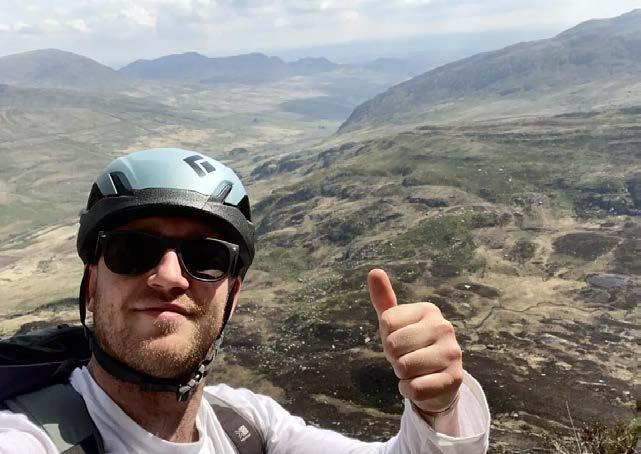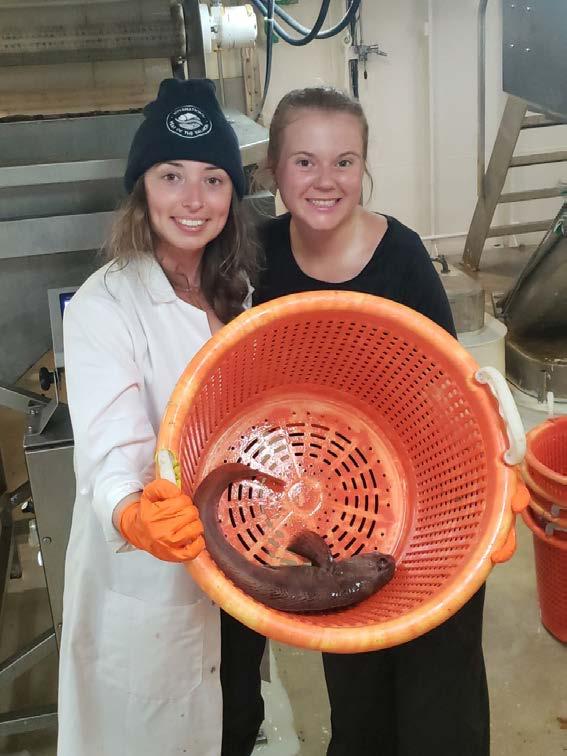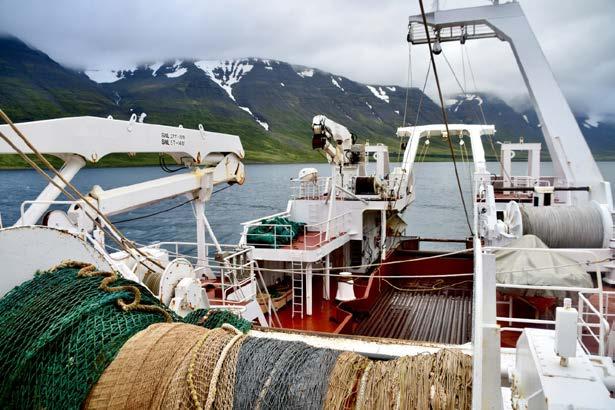
6 minute read
Message from the Chair of SOSA
Climate-Critical World Record Attempt to Reach the #LASTPOLE in February 2023
George Reese, a Bangor University student from Lugwardine, near Hereford has been selected to undertake one of the world’s most ambitious unconquered challenges: to reach the Northern Pole of Inaccessibility.
World renowned explorer, Jim McNeill, has chosen Marine Biology & Zoology student George, to take part in one of the most important and ambitious polar expeditions of our time; to be the first expedition in history to reach the Northern Pole of Inaccessibility, collecting vital climate change data on route.
Defined as the furthest point from land on the Arctic Ocean and therefore its centre, the Northern Pole of Inaccessibility remains the last truly significant place in the Polar Regions, yet to be reached by humankind and is over 270 miles further than the Geographic North Pole. The whole journey will be near to 800 miles from the northern shores of Canada.
A life-changing challenge
The expedition is not only a record-setting adventure but will be gathering “crucial datasets” to benchmark the condition of the ocean for the NASA funded National Snow and Ice Data Center (NSIDC) scientists, led by Nobel Prize winning scientist, Walt Meier. These, along with weather data, measurements of pollution and counting polar bears that may be encountered, deliver the reality of climate change and make the whole endeavour worthwhile and purposeful.
Having been selected for the Ice Warrior #LASTPOLE Expedition George, who has taken a year out from his studies, is undergoing a comprehensive and intensive training programme (from February 2022 – January 2023) to take on one of four 20-day legs, pushing the route across the Arctic Ocean.
“I have a passion for the natural world, a keen interest in climate change and its effect on the planet. I decided to study at Bangor University for its world-renowned reputation, and for the amazing schools of Natural and Ocean Sciences.
When introduced to the Ice Warrior Project I knew I wanted to get involved. I felt I could play a part in the collection of data and contribute to scientific research which will have a direct impact on the understanding of the effects of climate change in the polar regions. I have always dreamed of being a polar explorer and taking part in a big expedition such as this. Being a part of this expedition will deepen my understanding of my scientific studies whilst collecting scientific data along the way.
By taking on a life-changing challenge such as this, it’s sure to broaden my career prospects within the natural history filmmaking industry. My comprehensive training so far has consisted of rigorous first aid and expedition core skills, over the last twelve months and I am now preparing for Polar and Advanced Polar training in Svalbard come January 2023. I feel like my path and past challenges have brought me to a point where I’m looking forward to taking on a challenge such as the Last Pole Expedition.
The Last Pole expedition aims to depart for the Pole of Inaccessibility in February 2023.”
Explorer, expedition leader and Founder of Ice Warrior, Jim McNeill said “I’m delighted to have George in the expedition team and look forward to training him in every aspect which will make him a competent polar traveller.”
Professor John Turner, Head of the School of Ocean Sciences said:
“We are all very proud of George for undertaking this adventure. Ocean Sciences is by its very nature an adventurous subject, so we were very excited to hear that George wanted to take part in such an important expedition. We will be watching his progress with great interest. Good luck to George, Jim and the rest of the Ice Warrior team.”
Gaining Research Experience on an Icelandic Cruise – by Francesca Fehlberg (BSc Marine Biology and Zoology) and Thea Moule (MScRes Marine Biology)

Alongside academic studies it is important to gain external research experience to enhance employability. The marine research industry is becoming an everincreasingly competitive field, and such experiences provide the opportunity to advance data collection and analytical skills obtained during the Marine Biology undergraduate course. Additionally, the chance to network with other researchers in the field can allow for new opportunities to arise and interdisciplinary knowledge to be shared. Francesca and Thea, both SOS students and former Gavin Borthwick Prize recipients, were fortunate enough to be part of James Waggitt’s research team on a recent Eurofleets cruise in Iceland.
Francesca graduated this summer with a BSc in Marine Biology and Zoology and she will continue her studies at Bangor University in September on the MSc Marine Environmental Protection course. Currently, Francesca is a Student Reviewer for the University as well as a Student Trustee for UNDEB Bangor. Additionally, this Summer, she received the Ecology Resources Ltd. Bursary award to support her work as a Lead Technical Assistant on the Skylark project for the Swiss Ornithological Institute in Switzerland. Thea Moule graduated last summer with a BSc in Marine Biology and is currently an Athena Swan Scholar recipient and MScRes postgraduate, researching the impacts of coral bleaching on reef fish body-size distributions among distinct coral habitats. Alongside her master’s she has presented her research at the International Coral Reef Society conference in Bremen, funded by ICRS European Chapter and Challenger Society grants, and received a full scholarship to attend the Coral Reef Ecology course at the Bermuda Institute of Ocean Sciences.
The Research Cruise, onboard the Arni Fridriksson, lasted from the 18th until the 25th of June, and it followed along 45 predetermined transects between Faxaflói and Breiðafjörður, collecting data to determine the energetic landscape of seabirds. The tasks were conducted over an 18-hour period and Francesca and Thea worked on two shifts, the first shift was from 4:00 until 9:00 and the second shift lasted from 14:00 until 19:00. For the duration of their time on board, they assisted on scribing and observing during Seabird surveys as well as sorting through plankton-, pelagic- and demersal trawls in the wet-room. The different marine species were then identified and grouped into length classes so that they could measure the organisms’ weights. In order to pick up on plankton or fish schools to trawl for underneath the boat the Simrad EK80 echosounder system was used. Some of the highlight species that were caught were a 15kg Atlantic Cod (Gadus morhua) and Atlantic Wolffish (Anarhichas lupus). Additionally, Thea and Francesca were able to gain further experience using a CTD and learn about how it can be used to measure conductivity, temperature, and depth in the water column.

This fully funded opportunity allowed Francesca and Thea to gain invaluable hands-on experience surveying wildlife, identifying species and using different sampling techniques in a professional setting. They were able to greatly profit from the international team and their knowledge that accompanied them on board. This Cruise had been delayed for two years due to the COVID-19 pandemic. It made this experience extremely special to all who were able to be a part of it. Therefore, everyone would like to say a huge thank you to James Waggitt for awarding us this opportunity.








